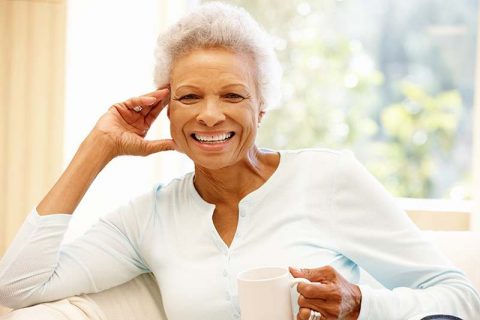January 17, 2020 by

Did you realize…approximately one half of all seniors are chronically under-hydrated, as reported by a recent research study conducted at UCLA? Not only that, but older adults over age 65 represent the highest group of hospital admissions as a consequence of dehydration.
Dehydration can very quickly sneak up on seniors, who frequently have a reduced sensation of thirst, who may experience medication side effects that induce hydration problems, or who mistakenly think that drinking less will prevent incontinence issues.
Senior dehydration can be extremely unsafe, raising the risk for health issues which include:
- UTIs
- Kidney stones and/or failure
- Blood clots
- Seizures
- Hypovolemic shock
- And numerous others
Dehydration is generally identified by the following symptoms:
Early stages:
- Decreased amount/darker-colored urine
- Dry mouth
- Feelings of weakness, dizziness, and/or tiredness
- Muscle cramps
- Irritation
Advanced stages:
- Confusion and disorientation, including difficulty with walking
- Low blood pressure levels and weakened, faster pulse and breathing
- Stomach bloating
- Sunken, dry eyes
- Skin that is wrinkled without any elasticity
- Intensified muscle cramps and contractions, and/or convulsions
Even though we often pay more attention to hydration if the temperature is high, it’s critical for seniors to drink sufficient fluids all year long. A simple formula to find out exactly how much, on average, an older adult ought to drink on a daily basis is to divide the senior’s body weight by 3, and have him or her consume that many ounces of water. To illustrate, if an older adult weighs 180 pounds, he or she would need to have a minimum of 60 ounces of water daily.
Try these guidelines so that the seniors you love stay healthy and hydrated:
- Plain water is the best, but take into account other types of fluids, such as soup, juice, fruits, and vegetables. However, try to avoid sugary and caffeinated beverages.
- Place bottled water or a small pitcher of ice water and a cup near the senior to encourage him or her to sip on it throughout the day.
- Try various temperatures. In some cases a warmed cup of water is more soothing than an icy one. You can even try heating up juice as well as other beverages to determine if they’re more appealing, or offer popsicles.
At Home Independent Living, providers of senior care Syracuse, NY and the surrounding areas trust, is experienced in imaginative strategies to help seniors stay hydrated, as well as in monitoring fluid intake to make sure adequate fluids are consumed every single day. Reach out to us at (315) 579-HOME (4663) to find out exactly how we can help enhance the health of cherished older adults throughout Syracuse, NY and the surrounding areas, right in the convenience and familiarity of home.
